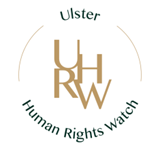ICRIR – ‘carry out review of Teebane massacre’
Lurgan-based human rights organisation, Ulster Human Rights Watch, has asked the ICRIR to carry out a review of the PIRA Teebane massacre which claimed the lives of eight men and seriously injured other passengers who were in the van.
The new development comes the day before a commemoration takes place to mark the 33rd anniversary of the terrorist roadside slaughter.
One of the eight workers murdered was an off-duty soldier. The men had been engaged in construction work on Lisanelly Army Base in Omagh and were on their way to Cookstown when their van was destroyed in the blast at Teebane crossroads.
UHRW Advocacy Manager Axel Schmidt said the attack merited a review and hoped it would provide relatives with some answers.
Mr Schmidt said: “UHRW is representing two of the families who lost loved ones in this appalling attack.
“A number of factors are under the microscope. First, in a review by the Historical Enquiries Team (HET), a number of suspects were identified but they were never arrested or interviewed. This fact, on its own, is a source of major concern for the families.
“Second, technological advances in forensics have created new opportunities to re-test over twenty exhibits. These tests could help in the identification of the PIRA terrorists, opening the way to possibly initiating criminal proceedings.
“Families remain convinced that had appropriate protective measures by the employer Karl Construction and the RUC’s ‘Operation Ironside’ been followed, this atrocity could have been thwarted.
“There were failings and shortcomings but ultimately this heavy loss of innocent lives was down to the murderous actions of the PIRA.
“Even if prosecutions are not possible, the ICRIR has the power to name those involved in the bombing.
Ms Diane Kerrigan, the daughter of Cecil Caldwell, one of the eight men murdered, said: “This will be a challenging piece of work for the Independent Commission for Reconciliation and Information Recovery.
“All I want is some answers. Who carried this out and why? My family was devastated, left with decades of pain and torment.
“This was a calculated and callous and, yes, sectarian attack on workers who wanted no more than to do all they could for their families.
“We have to hope that the ICRIR will bring us some closure. If that closure results in the naming of the terrorists and opens the door to criminal proceedings, then our persistence will have been rewarded.”
